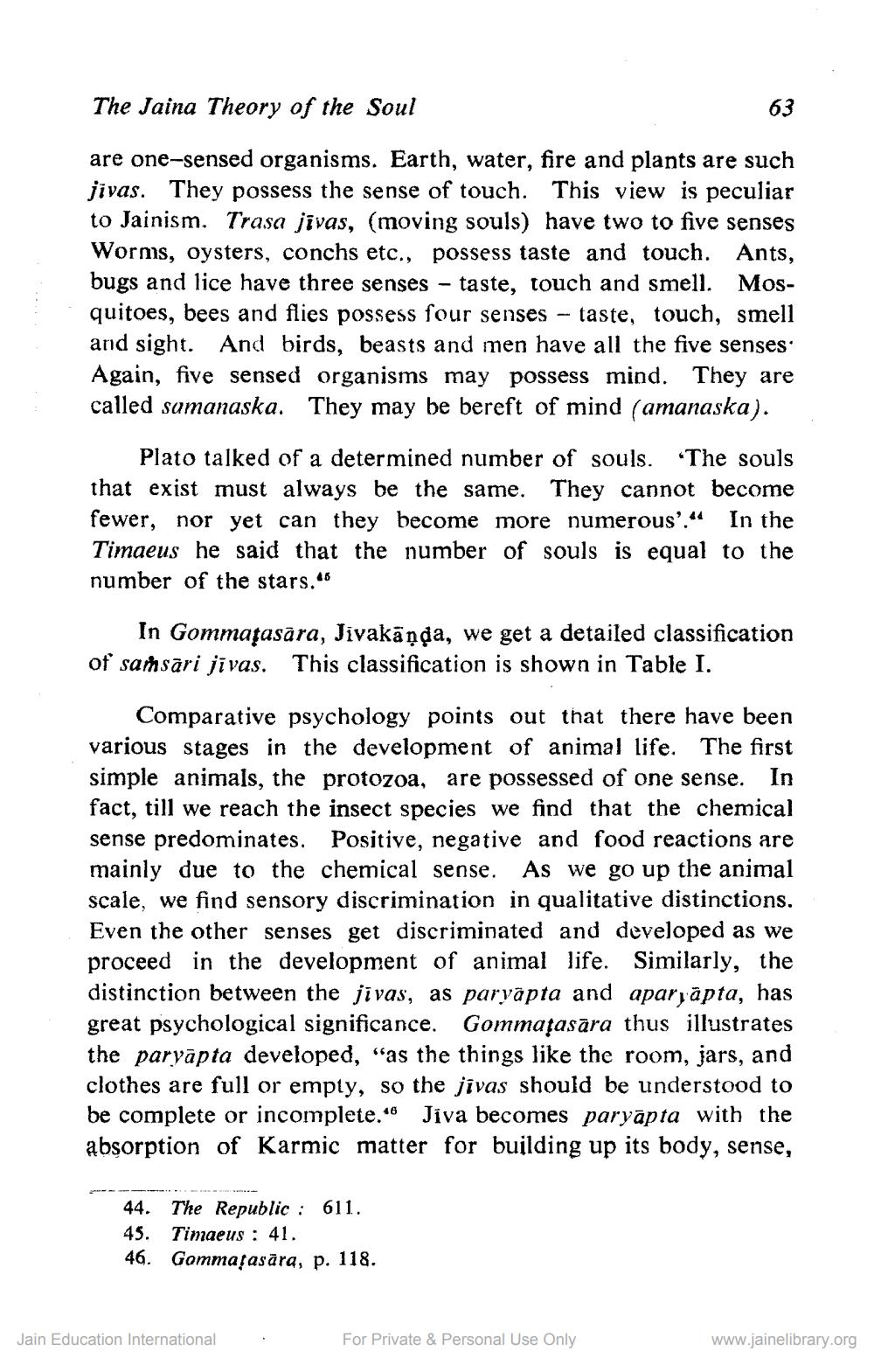________________
The Jaina Theory of the Soul
63
are one-sensed organisms. Earth, water, fire and plants are such jivas. They possess the sense of touch. This view is peculiar to Jainism. Trasa jivas, (moving souls) have two to five senses Worms, oysters, conchs etc., possess taste and touch. Ants, bugs and lice have three senses - taste, touch and smell. Mosquitoes, bees and flies possess four senses -- taste, touch, smell and sight. And birds, beasts and men have all the five senses Again, five sensed organisms may possess mind. They are called sumanaska. They may be bereft of mind (amanaska).
Plato talked of a determined number of souls. "The souls that exist must always be the same. They cannot become fewer, nor yet can they become more numerous'.“ In the Timaeus he said that the number of souls is equal to the number of the stars.
In Gommatasara, Jivakāņda, we get a detailed classification of samsāri jīvas. This classification is shown in Table I.
Comparative psychology points out that there have been various stages in the development of animal life. The first simple animals, the protozoa, are possessed of one sense. In fact, till we reach the insect species we find that the chemical sense predominates. Positive, negative and food reactions are mainly due to the chemical sense. As we go up the animal scale, we find sensory discrimination in qualitative distinctions. Even the other senses get discriminated and developed as we proceed in the development of animal life. Similarly, the distinction between the jivas, as paryāpta and aparāpta, has great psychological significance. Gommagasara thus illustrates the paryāpta developed, “as the things like the room, jars, and clothes are full or empty, so the jīvas should be understood to be complete or incomplete.46 Jiva becomes paryāpta with the absorption of Karmic matter for building up its body, sense,
44. The Republic : 611. 45. Timaeus : 41. 46. Gommafasāra, p. 118.
Jain Education International
For Private & Personal Use Only
www.jainelibrary.org




